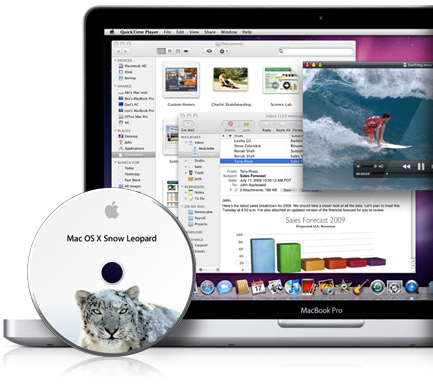
DHS: Expect your computer to be seized without suspicion
In what was presented to the public this week as a clarification of its privacy policy, the US Dept. of Homeland Security published a paper referring to new guidelines for its immigration and customs agents regarding how they may conduct border searches of travelers' computers and electronic media. Clarifying the existing law, both sets of guidelines reiterated the department's policy created during the previous administration: Agents may seize, detain, and/or retain individuals' PCs and media without having reason to suspect that those people or those machines and devices are connected with a crime.
"ICE [Immigration and Customs Enforcement] Special Agents acting under border search authority may search, detain, seize, retain, and share electronic devices, or information contained therein, with or without individualized suspicion, consistent with the guidelines and applicable laws set forth herein," states the new policy for immigration authorities published last August 18 (PDF available here). "Assistance to complete a border search may be sought from other Federal agencies and non-Federal entities, on a case by case basis, as appropriate."

AT&T announces tentative wireline union deal
AT&T announced details of its tentative agreement with the Communications Workers of America who began contract re-negotiations in April.
The CWA represents 7,000 of AT&T's legacy wireline workers, whose contracts expired in the spring. Today, AT&T announced it has tentatively arrived at a three-year agreement upon wages, pension band increases, and health care. CWA workers were threatening to strike if AT&T changed their health care benefits, which included an HMO with 100% of the premiums covered by AT&T.

Financial institutions vulnerable to phishing-by-CD, says security report
The National Credit Union Administration this week issued an alert warning credit unions of an innovative form of scareware that utilizes traditional postal mail and a piece of malware that the user actively installs.
Some NCUA member credit unions have reportedly received letters that claimed to be from the NCUA which contained CDs of important "training materials" that would help inform users about phishing scams. Running the discs, naturally, loaded up credit union computers with a bunch of malware.

'Up-to-Date' Snow Leopard customers aren't getting what they paid for
The Mac OS X Snow Leopard Up-to-Date program promised users who bought a qualifying Mac or Xserve on or after June 8th of this year an automatic upgrade from Leopard to Snow Leopard for only $9.95.
However, it appears that Apple is only shipping out full versions of the operating system upgrade today, and not the Up-to-Date versions. As to be expected, customers who put in their orders months ago are expressing 140 characters worth of displeasure all over Twitter this afternoon.

A reluctance to Bing: UK Yahoo portal partner makes first switch to Google
When Microsoft made its deal last month with Yahoo to provide the search infrastructure for its home page, using technology from Bing, it left open and non-exclusive the fate of several deals the one-time #2 search provider had already made, especially with carriers. Specifically, does Bing become the default search provider for services that had previously made a deal with Yahoo? The answer appeared to be no.
Today, that suspicion was roundly confirmed, as one of the world's largest cooperative portals with Yahoo -- one which still bears the Yahoo brand -- quietly but obviously switched its search box to one that was "powered by Google." In a move first discovered by the UK-based blog Connected Internet, BT's Web portal BT Yahoo became a carrier of Google search rather than Bing.

Apple: If an iPhone cracks or overheats, that's your problem
In the latest indication that Apple tends not to show as much love toward its customers as its customers do toward it, the company made a statement to AFP press this morning effectively saying that fewer than 10 reports from its customers of overheating iPhone batteries are to be believed. Further, it added that anyone who finds herself with a cracked iPhone needs to look into the mirror for the cause.
"To date, there are no confirmed battery overheating incidents for iPhone 3GS and the number of reports we are investigating is in the single digits," an Apple spokesperson told the AFP. The report goes on to say that cracking in iPhone glass cases is due to a phenomenon it has termed "external force."

The Dell surprise: A turnaround suggests the warnings were unnecessary
Just last month, Dell issued an out-of-cycle earnings warning telling investors the underpinnings of its business didn't look as solid as it thought, and gross margins could be headed for a freefall rather than the anticipated steep decline. If Dell had to make another financial reporting error, perhaps this one was the one to make: The company's $4 billion cost-cutting initiatives kicked in when it needed them most, resulting in an operating income improvement of 62% over the first quarter of the year, and a quarter-to-quarter gross margin increase by 10%.
Not that 18.7% gross margin is anywhere that Dell, or any other company, would want to be for any sustained length of time. But rather than the dire straits the company's July warnings were foretelling, Dell ended up with a better second quarter than its first in several departments -- this while its biggest competitor, HP, took a bigger hit that it expected.

Confirmed: China Unicom in three-year deal for iPhone 3G
In its quarterly report to the Hong Kong Stock Exchange yesterday, the Chinese telephone carrier China Unicom announced it had reached a three-year deal with Apple to sell an iPhone model in China. This in a section of the report dedicated to 3G technology progress, so although the precise iPhone model was not stated, we can assume Unicom will be getting a 3G-capable unit.
The timeframe for the launch will be calendar Q4 this year, in keeping with a new 3G marketing campaign that Unicom is simply calling "WO" (as in "whoa!"). "'WO' carries the Company's brand-new service philosophy and reflects the Company's corporate image of 'being innovative,'" reads the report, quotation marks included. "With the continued improvement of the Company's network quality, the further upgrade of the service standard and the official launch of 3G services, 'WO' will offer a brand new experience for users."

Nokia N900: The future of the 'MID' form factor?
There have been a couple of form factors in recent years that have completely failed to capture the public's imagination, despite their promising capabilities: Tablets and Mobile Internet Devices (MIDs).
However, with the dramatic level of rumor circulating about Steve Jobs and Apple's pet tablet project, there may be hope for that form factor after all. And with Nokia's announcement of the N900 today, the MID concept looks like it might stick around too.

FCC launches investigation of wireless industry
This afternoon, the Federal Communications Commission gingerly passed measures that will result in the publication of three "Notices of Inquiry," seeking public input not only on the status of wireless broadband communications in this country, but what measures it should take to better judge just what "good" or "bad" means for that industry. While all those positive words were being spoken on the industry's behalf, however -- references to "the spirit of American innovation" abounded from both sides of the bench today -- from the other end of the building this afternoon, the FCC formally announced it will be launching an inquiry to "identify concrete steps the Commission can take to support and encourage further innovation and investment in the wireless marketplace."
"Wireless mobility has become central to the economic, civic, and social lives of over 270 million Americans," a statement from the FCC said this afternoon. "We are now in the midst of a transition from reliance on mobile voice services to increasing use of and reliance on mobile broadband services, which promise to connect American citizens in new and profound ways. A robustly competitive mobile wireless market will be essential to realizing the full benefits to American consumers and channeling investment into vitally important national infrastructure. The FCC is seeking to ensure that competition in the mobile wireless market continues to bring substantial benefits to American consumers."

Mozilla: Privacy concerns initially prevented some upgrades to Firefox 3
One of the benefits of working in an organization whose founding premise is based on openness is that mistakes can be openly admitted, and thus more quickly rectified. An example of this principle in action comes from the blog for Mozilla's own analytics team, which earlier this week presented a very telling discovery from a survey of Firefox 2 users who continually declined making the upgrade to version 3.0 (we're not even dealing with 3.5 yet).
The most oft-cited reason users declined to make the upgrade -- from one declining user in four, or about 1,250 users, according to survey results -- was the apparent fact that a user's history of previously viewed Web sites could not be deleted from the address bar. As a result, when typing in an HTTP, any user could discover the addresses of similarly-named Web sites that any other user of that same browser (under the same logon name) had previously viewed.

Verizon calls Comcast's bet with Web-based FiOS TV beta
Two months ago, Comcast announced a limited beta trial of an online TV service involving networks of Time Warner's Turner Broadcasting division, where Comcast subscribers may be treated to earliest availability of post-airdate programming from networks including TBS and TNT. This morning, Verizon announced the launch of an almost identical trial, involving exactly the same networks, in a deal that makes one wonder whether it's Turner that's in the driver's seat here.
As part of Turner's "TV Everywhere" initiative, select FiOS fiberoptic service subscribers will be offered first crack (perhaps at the same time as Comcast customers) at online availability of shows like Raising the Bar, Saving Grace, and The Closer. Rather than seeing those shows first through online portals such as TNT.tv, logged on users to Verizon Online will receive invitations to join the carrier's limited trial.

Google News caught in Italian antitrust probe
Following complaints from the Italian Newspaper Publisher's Federation (FIEG), Italian authorities have launched a probe to find out whether Google abuses its position of the world's most popular search engine to deprive others of advertising revenue.
At the heart of FEIG's complaint is Google News and its mystery algorithms for listing top stories. FEIG complained that since it is unknown how Google News decides which stories are listed at the top, content providers don't know how their stories should be written so as to gain top billing in Google News listings. Conversely, sites also have no say if they do not want their content listed on Google News.

Mac OS X Snow Leopard is coming: Yes, do upgrade!
If nothing else, the operating system market these days is infinitely entertaining. Consider the humble upgrade.
Some OS upgrades, like XP-to-Vista on a marginally capable machine, demand more up-front planning than the end result is often worth. You end up spending money and time on a machine that, while it may look prettier, runs slower and gives you more headaches than it solves. Other upgrade scenarios, like Vista-to-Windows 7, are a lot more straightforward and easier for most folks to justify.

Home video game console prices reach equilibrium with Xbox 360 drop
Just over a week after Sony debuted its



